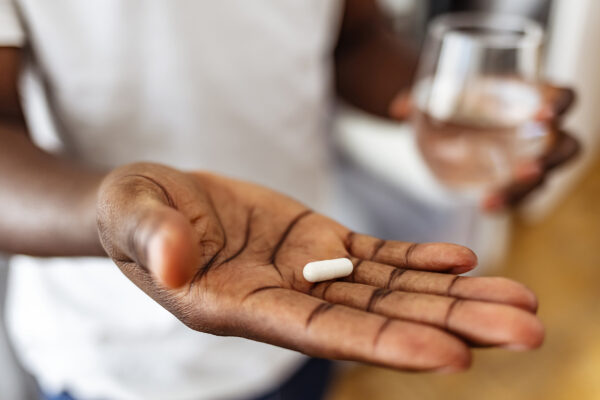Proscovia Nabunya, an associate professor at the Brown School, has received a $5 million federal grant from the National Institute of Mental Health, part of the National Institutes of Health (NIH), to streamline mental health treatment and HIV medication support for adolescents living with HIV in rural Uganda.

The five-year project (2025-2030) is a collaboration with researchers from The City University of New York and other partners. The study aims to integrate evidence-based mental health care into existing HIV treatment systems to improve outcomes for young people navigating both challenges.
The team will assess the feasibility and effectiveness of the intervention, as well as the barriers affecting access to care and treatment adherence. Ultimately, researchers hope their findings also can help improve treatment protocols and scale up the approach to help HIV patients in other in low-income settings.
“This new study builds on lessons learned from our earlier work with young people living with HIV,” said Nabunya, who is also director of the International Center for Child Health and Development (ICHAD) at Washington University in St. Louis. “By integrating mental health support within existing HIV care, we hope to close a critical gap in how we serve this young population. Our ultimate goal is to identify practical, scalable solutions that strengthen both mental health care and medication adherence — two essential components of long-term HIV treatment success.”
Globally, one in four adolescents living with HIV experience poor mental health — a major barrier to ending the HIV epidemic, she said. Previous research by ICHAD and others has linked depression and other mental health challenges to lower medication adherence, reduced engagement in care, and increased risky behaviors that can fuel HIV transmission. That work underscores the need for accessible, integrated interventions, Nabunya said.
The new project, titled Streamlined Treatment and Evidence-based Adolescent counseling and Medication Support (STREAMS), will evaluate a model that combines streamlined interpersonal psychotherapy (IPT) groups tailored to adolescents ages 15–19, a family-strengthening component and adherence support.
“The IPT intervention — an evidence-based approach for treating depression — addresses key triggers such as grief, interpersonal conflict, major life changes and social isolation,” Nabunya said. “Both group and individual approaches of IPT have shown long-term benefits in treating depression, including among adolescents.”
Adolescents will be recruited from participating HIV clinics and screened for depression using a cellphone–based assessment. Those who screen positive will be enrolled in one of three study groups:
- Streamlined IPT group and family strengthening
- Streamlined IPT group and standard of care (adherence counseling)
- Standard of care (adherence and mental health counseling)
The project brings together investigators from WashU, The City University of New York, New York University, Columbia University, Makerere University in Uganda and StrongMinds, a global nonprofit dedicated to improving mental health care.
Learn more about ICHAD’s ongoing research on the ICHAD website.


